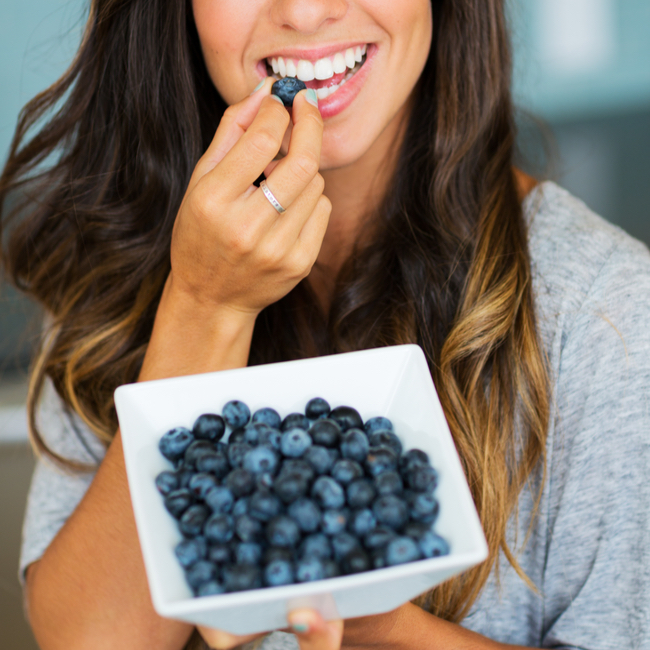You’ve more than likely been told that berries are healthy for any age group. If you’ve ever wondered what they can do for aging skin, however, as well as the overall health of your body at age 40 and beyond, look no further. We checked in with health experts to learn more about the power of antioxidant contents in berries, and how eating them every morning can improve and preserve your optimal state. Read on to learn what kind of berries each expert recommends for women as they age, and tips from Trista Best, RD, MPH, registered dietitian at Balance One Supplements, Alicia Galvin, RD, resident dietitian at Sovereign Laboratories and Lisa Richards, registered nutritionist and creator of The Candida Diet.


So, Why Are Berries Important For Healthy Aging?
The antioxidants and plant compounds found in fruit, and other plant foods, are significantly important to our overall health, Best explains, pointing out that they work in the body to prevent, reduce, and even reverse free radical damage. “If this damage is allowed to occur and to persist, it can lead to poor health in a wide variety of ways,” she continues. “These ways are both internally and externally as this damage causes an increase in aging in both our appearance and our internal health.”
Galvin adds that berries are crucial for a daily source of antioxidants and fiber. “Antioxidants are nutritional components that help scavenge free radicals,” she says. “Free radicals can cause DNA damage, age the skin, and promote inflammation— all of which become more important to manage as we age.” The fiber and prebiotics that berries provide, she says, also feed our good gut bacteria, which conduct essential tasks like helping support hormone balance, balance blood sugar, and immune support.
“Berries are some of the lowest sugar fruits you can consume, so they can provide a bit of sweetness to the diet without spiking blood glucose levels like some other higher sugar fruits do,” she continues. Antioxidants and phytochemicals, which she notes are often found in these foods, have been “shown to be protective” for brain health, reducing inflammation and supporting cardiovascular health.

Which Berries Are Best For Daily Antioxidant Content?
Berries of just about every variety, but especially blueberries, Richards specifies, contain fiber and phytonutrients which act as antioxidants in the body. Antioxidants (which work to reduce free radical damage from toxins) lead to inflammation and chronic disease along with outward impacts like those associated with aging, she says, pointing to blueberries as the choice with the “highest antioxidant content.”
“Their specific antioxidants are flavonoids, plant compounds that give these berries protection and when consumed, give us similar protection on a cellular level as well,” Richards continues. “These versatile berries are also high in nutrients while being low in calories. This makes them an ideal ingredient to shakes, desserts, yogurt or ice cream toppings, or just eaten by themselves.”
Richards also notably mentions that blueberries have been “linked to reducing blood pressure, blood sugar, and overall risk of chronic disease.” This is likely due to their ability to prevent and reverse oxidative stress, she adds.
“If there was one fruit you had to focus on eating regularly over all others for its ability to lower disease, I would recommend blueberries,” Best concludes, reiterating that they are rich in flavonoids, the potent plant compounds that raise the antioxidant level in the body significantly.


























